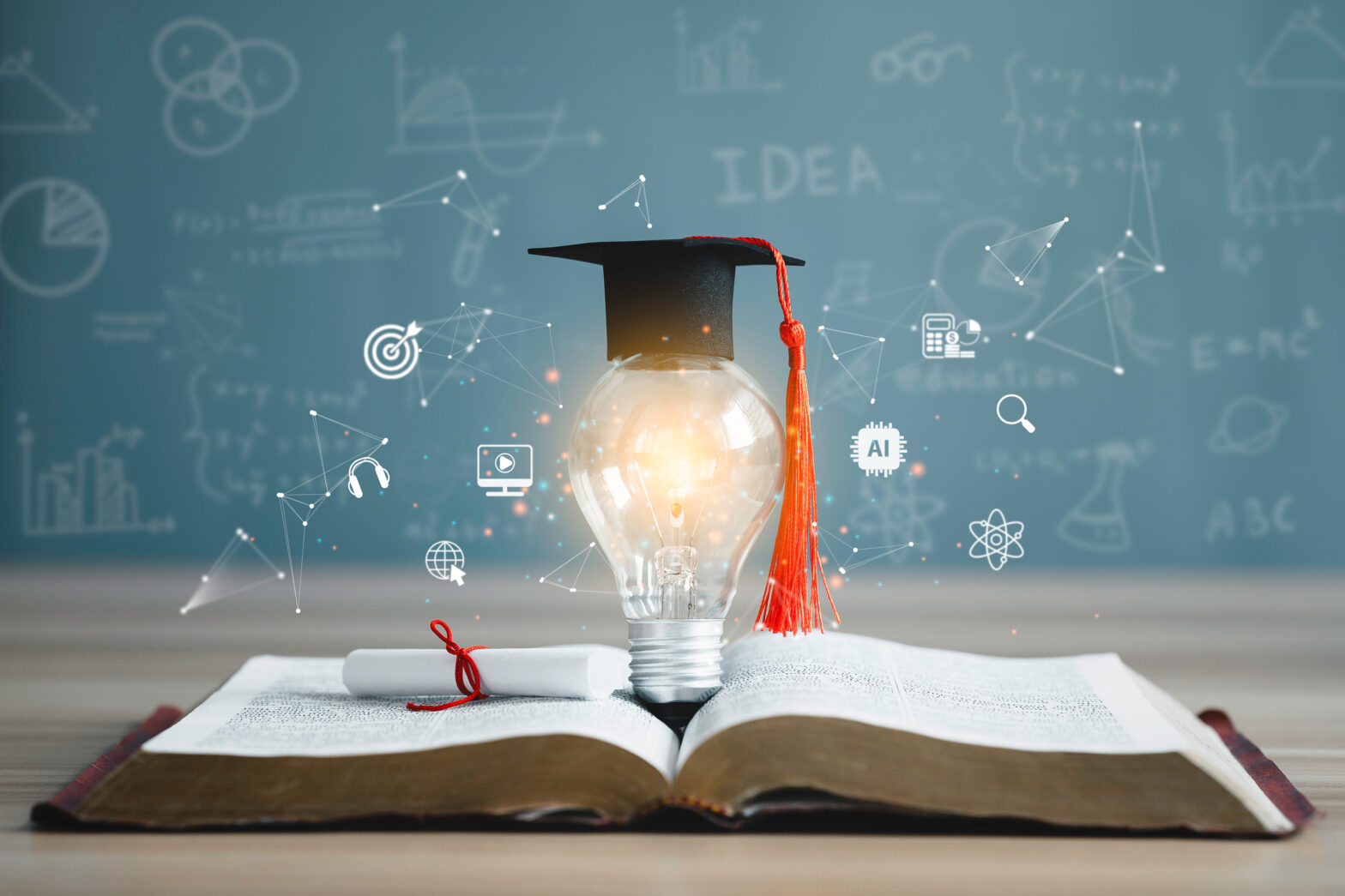Right now, we find ourselves at a critical inflection point as AI reshapes nearly every facet of our lives—from health care to construction to agriculture, AI is changing the way we work, learn and interact with the world. And although such large-scale change can be daunting, it also offers an opportunity to harness powerful tools for good. In classrooms across the heartland, educators are beginning to do just that—leveraging AI to boost student learning and transform the educational experience.
AI Tutors Empowering Educators
AI is changing classrooms, not by replacing teachers, but by enhancing their capabilities in unprecedented ways. By personalizing learning experiences and alleviating administrative burdens, AI-tutoring tools can help better serve individual student needs and reduce educator burnout.
- Khanmigo | South Dakota & Indiana: Khanmigo is an AI-powered tutor and teaching assistant developed by Khan Academy, and designed to prioritize safety and support effective, engaging learning for students and families. Unlike other AI tools, Khanmigo guides learners to think critically and discover answers for themselves, rather than simply supplying the answer like traditional education learning tools. This approach helps students engage more deeply with the material, fostering better understanding and retention.
- Amira Learning | Louisiana, Texas, Iowa & Oklahoma: Amira Learning is an AI-powered reading tutor that listens to students read aloud, assesses their fluency and comprehension then provides real-time feedback. This immediate response keeps students engaged and allows teachers to promptly address reading challenges. Students using Amira for just 10 minutes per day have experienced reading growth rates up to 2.5 times faster than traditional instructional methods.
- Synthesis Tutor | Oklahoma: Governor Stitt’s Human Potential for Future Industries Task Force is piloting Synthesis Tutor in select Oklahoma 3rd grade classrooms. Synthesis is an AI-powered math learning program designed for kids ages 5-11, focused on building deep understanding and problem-solving skills through interactive lessons. Developed on the SpaceX campus, Synthesis has proven highly effective in developing critical thinking and real-world problem-solving skills in young students.
- Alpha School | Texas: In Austin, TX, Alpha School utilizes AI-driven tutors to condense academic learning into two-hour daily sessions. This model allows students to complete core academics efficiently, freeing up time for life skills, passion projects and co-curricular activities. By leveraging AI for personalized instruction, Alpha School reduces the administrative workload on educators and allows students to learn more in less time.
Meeting Students Where They Are
Beyond tutoring, AI tools are helping to close accessibility gaps and support a variety of learning needs—meeting students, families and communities exactly where they are.
- Bridging the Digital Divide: AI tools are addressing disparities in digital access, ensuring that all students–regardless of their technological resources–can engage with educational content. Platforms like Kolibri offer offline access to a vast library of educational materials, enabling students in rural or remote areas to continue learning without consistent internet connectivity.
- Supporting Neurodivergent Students: Innovative tools are providing personalized support for neurodivergent learners to accommodate a variety of learning styles. A variety of text-to-speech software and speech recognition systems assist students with reading or writing challenges by allowing them to interact with educational material through listening and speaking. Dysolve, a neuroscience-backed AI tool designed specifically for students with dyslexia, helps identify and address reading challenges through personalized exercises and real-time feedback, empowering learners and markedly improving literacy skills.
- Removing Barriers to Access Information: Language translation and live transcription tools are breaking down communication barriers for English Language Learners (ELLs) and students with hearing impairments. Tools like Ava, designed for individuals who are Deaf or hard of hearing, provide real-time captions for discussions and lectures. With approximately 5.3 million EL students in the U.S.—including 20% of Texas and 13% of Illinois students, respectively—AI tools like Google Translate facilitate real-time translation, enabling students to access lessons in their preferred language and participate fully in classroom activities.
Potential Risks and Challenges
While AI has transformative potential in education, it is essential to thoughtfully approach its use in classrooms by considering several key challenges:
- Algorithmic Bias: AI systems learn from data, and if trained on biased datasets, they can perpetuate existing inequalities. For instance, studies have shown that AI tools used in educational settings can inadvertently mirror racial or socioeconomic biases, potentially impacting student assessments and opportunities.
- Data Privacy and Security: Deploying AI tools in schools can involve the collection and analysis of student data, raising concerns about privacy and security. Ensuring that sensitive data is protected against unauthorized access and misuse is crucial to maintaining trust and safeguarding student information.
- Educator Autonomy and Employment: The integration of AI in classrooms raises questions about the role of educators and potential job displacement. While AI can automate and support certain tasks, it’s crucial to ensure that teachers retain agency and authority in pedagogical decisions and that AI serves to augment—not replace—human educators.
As AI becomes increasingly ubiquitous in schools across the country, policymakers across heartland states are releasing guidance and legislation on how to leverage these tools for student success and mitigate against the challenges and risks AI technology can pose—and these efforts must continue. By pairing innovation with intention, heartland communities are showing that when used wisely, AI can be a powerful partner in preparing the next generation for success.

